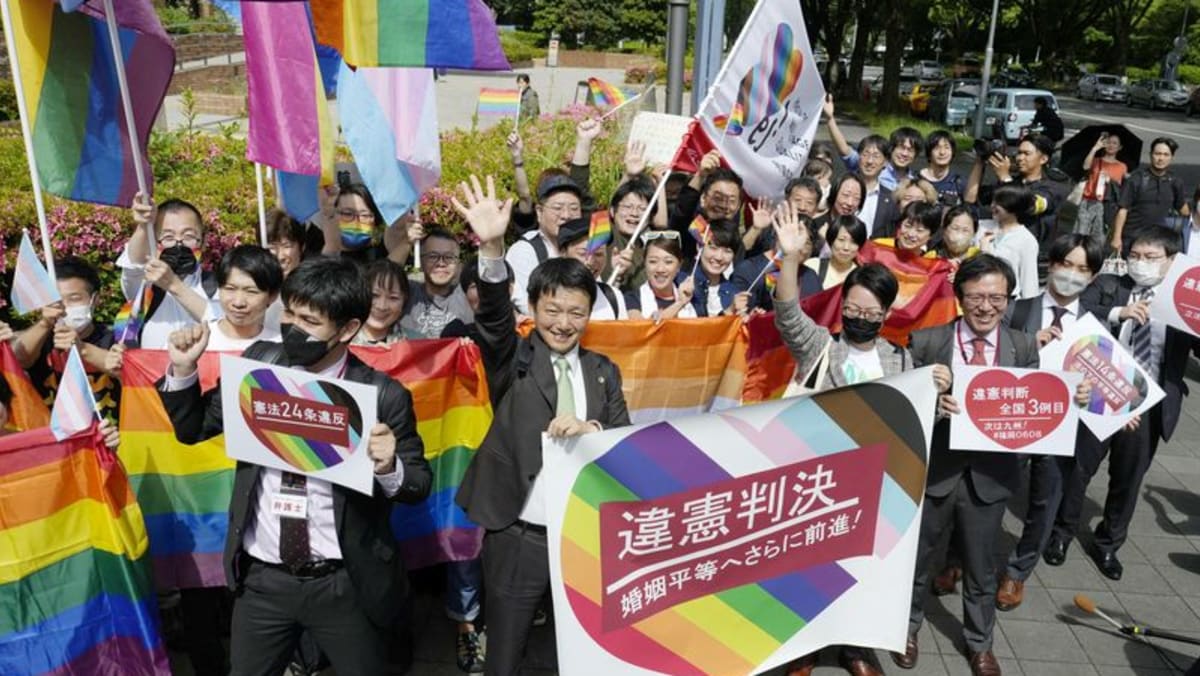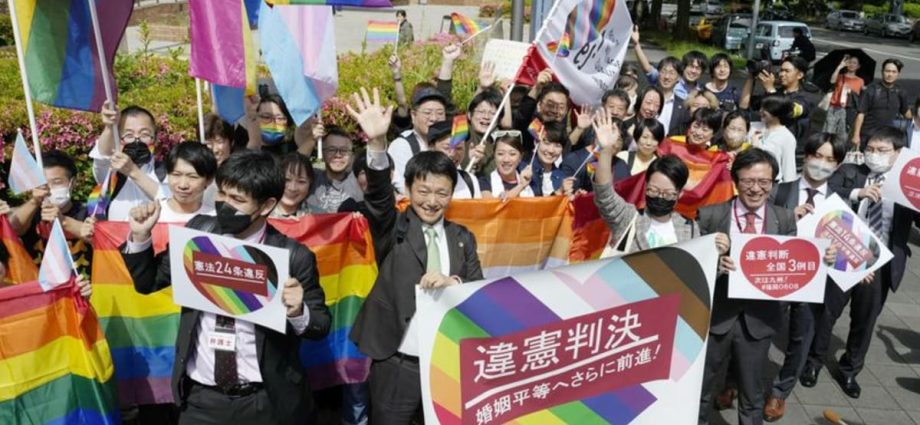
Nevertheless, more than 300 Japanese municipalities covering about 65 per cent of the population allow same-sex couples to enter partnership agreements.
But the right is limited in scope. Partners cannot inherit each other’s assets or have parental rights to each other’s children. Hospital visits are not guaranteed.
Mizushima said the court in its ruling had noted that such partnership agreements were not fully sufficient, which she took as an encouraging sign, adding that she felt the court recognised there was little difference between same-sex couples and other couples.
Chief Cabinet Secretary Hirokazu Matsuno told a press conference that the government did not believe the civil code and marriage laws were unconstitutional.
“With regard to issues surrounding the introduction of same-sex marriage, we believe it is important to pay close attention to the opinions of all parts of the public,” he said.
While in general the world’s third-largest economy is considered relatively liberal, the LGBT community has been largely invisible because of conservative attitudes. Taiwan became the first place in Asia to legalise same-sex marriages in 2019.
A new law would have to be passed in Japan before same-sex marriages could actually take place.
The government pledged to pass a law promoting “understanding” of LGBT people before hosting the G7 summit this month, but opposition from conservatives delayed it so much a watered-down version was only submitted to parliament the day before the summit began.
The initial draft stipulated discrimination on the basis of sexual orientation and gender identity should “not be tolerated” but was changed to “there should be no unfair discrimination”, wording that critics say tacitly allows bigotry.
Japan has come under increasing pressure to change, both from other G7 members but also from economic lobbies, with businesses arguing that greater diversity is needed for international competitiveness.

